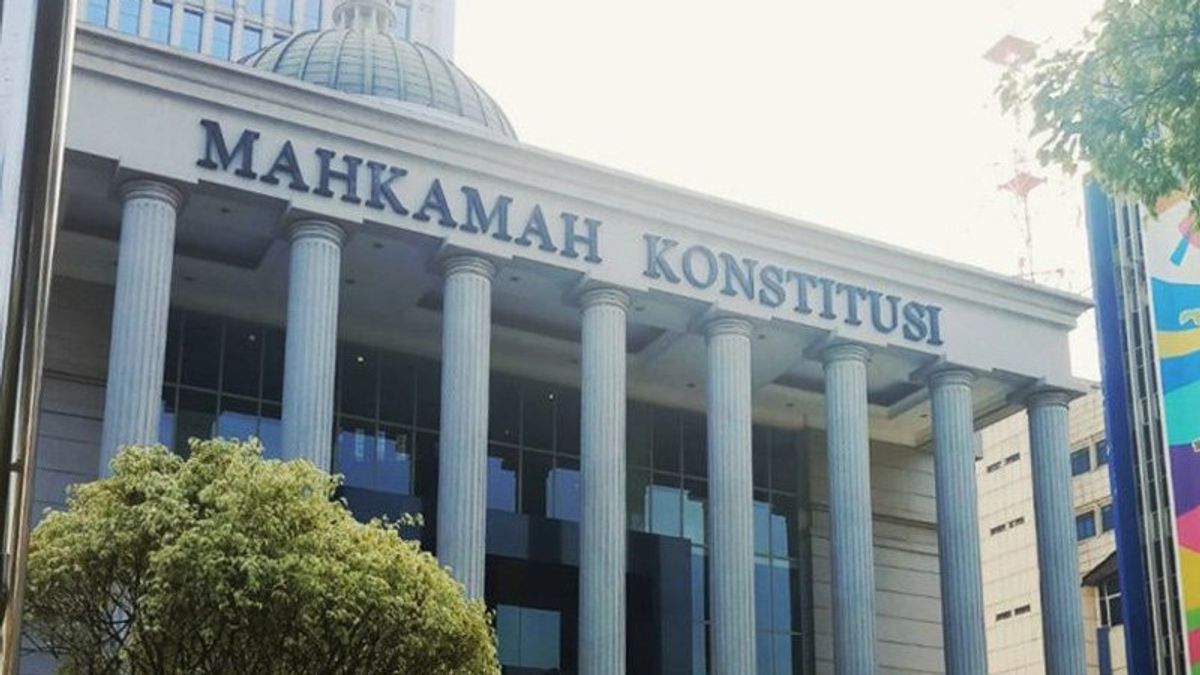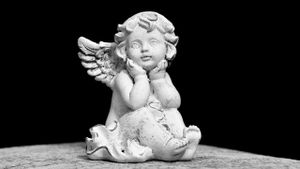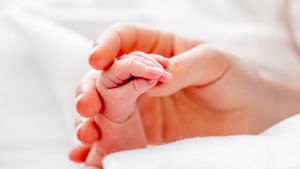JAKARTA - Raymond Kamil, a resident of Cipayung, East Jakarta, submitted a judicial review of the articles of the Population Administration Law (UU Adminduk) to the Human Rights Law. He admitted that he suffered constitutional losses for not embracing religion and belief.
"That the constitutional rights of the applicants who do not embrace religion and belief are harmed by the enactment of the law which is the object of application and losses are actual and / or according to reasonable reasoning can occur and have a real causal relationship, "said Teguh Sugiharto, always the applicant's attorney in the trial which took place on Monday, October 21.
This case is registered with the number: 146/PUU-XXII/2024. The applicants were named Raymond Kamil and Indra Syahputra and were examined and tried by the chairman of the panel assembly Arsul Sani with members Arief Hidayat and Enny Nurbaningsih.
The article being tested consists of Article 22 of Law Number 39 of 1999 concerning Human Rights. The government, continued the applicant, said that government officials understand religious freedom only in the positive meaning which is limited to the freedom to choose one of the seven options provided in the KTP and KK columns.
This has an impact on freedom in a negative meaning, namely not being religious and apart from one choice, not getting recognition. Thus, guarantees of protection or at least cessation occur.
Then, the applicant tested Article 61 paragraph (1) and Article 64 paragraph (1) of Law 23/2006 concerning Adminduk. The government is considered to only provide a choice of filling in the religious column on ID cards and the KK is limited to only six religions and beliefs in God Almighty.
The petitioner said that substantially this violated the opinion of the Constitutional Court in the decision number: 140/PUU-VII/2009 which mandated the state must recognize and protect all religions that are embraced by the Indonesian people and are in Indonesia.
"So, the petitioners and the entire population in fact do not embrace one of the seven choices and those who are not religious are forced by circumstances to lie or not be served," said Teguh.
Material trials are also proposed for Article 2 paragraph (1) of Law 1/ 1974 concerning Marriage. This step is taken because the applicant does not embrace religion and belief so that his right is lost to have a legal marriage or which is hung conditionally on the implementation of religious rituals, the ritual of marriage according to religious provisions.
The petitioner also tested Article 12 paragraph (1) and Article 37 paragraph (1) and paragraph (2) of Law 20/2003 on the National Education System (Sisdiknas). Applicants say that their children who do not embrace religion and belief are still required to follow religious subjects.
And later, this applicant's child I (Raymond Kamil) is still not in college. When students are required to attend a religious education course. So, what is meant is coercion by a country that is contrary to the right to choose education," he said firmly.
Finally, the applicant has a problem with Article 302 paragraph (1) of Law 1/2023 concerning the Criminal Code. This is because the applicant considers that there is a very potential for suspicion of committing a criminal act when expressing opinions without any suspicion against the law in public.
Regarding this lawsuit, constitutional judge Arief Hidayat reminded the petitioner regarding the first precepts of Pancasila. The state, he continued, has freed citizens to adhere to any religion and belief.
The first principle of One Godhead has the consequence that this nation, whether in the life of the state, nation, society, or individuals living in the Unitary State of the Republic of Indonesia, must be blessed. Now, the implementation of the Gods is left to each of its citizens, "said Arief in the trial.
"Be able to be religious, in the decision of the Court also please if you want to have trust. So, there is no negative understanding, it is not permissible, or is not allowed to be religious or do not believe in God. But, you ask... the point is asking for a negative understanding, meaning that it is permissible not to be religious or distrusted. Well, that's what I think from that principle point of view, there are already things that must be disallowed.
SEE ALSO:
Meanwhile, constitutional judge Enny Nurbaningsih questioned the applicant's legal standing. He could not yet understand the explanation of the applicant's constitutional losses.
"This is a legal position, actually these two applicants, I and II, the point is as people who do not embrace religion or any belief. The point is that, both, yes. Then, that is what asks the Constitutional Court to provide space for those who do not embrace religion and any beliefs," said Enny.
"Well, how can the Constitutional Court give that space if you can't then explain? The first is regarding what exactly is the loss of constitutional rights given by the Constitution. I'm looking for nothing, what is the right given by the Constitution? That right must first be emphasized. What is the right given by the Constitution? " he concluded.
The English, Chinese, Japanese, Arabic, and French versions are automatically generated by the AI. So there may still be inaccuracies in translating, please always see Indonesian as our main language. (system supported by DigitalSiber.id)












